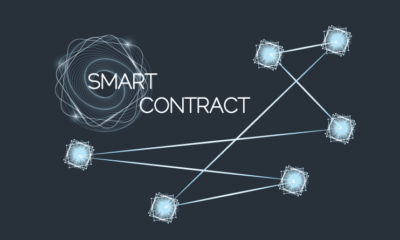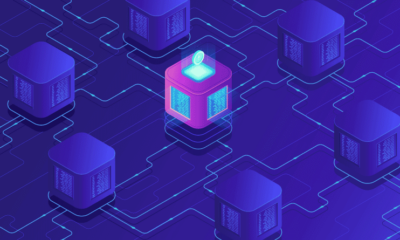
Blockchain technology is so much more than crypto and the metaverse. Enterprises are increasingly looking at mature applications – across industries – that aren’t just viable but make a genuine improvement in your bottom line.
Nearly 90% of companies in the US, UK, and China are starting to use blockchain in some capacity, and 81% even expect their budgets to increase, despite economic pressure. Where does blockchain make the biggest difference?
Here are 14 top industries with prominent blockchain use cases in 2023:
1. Traditional banking services
Banking and blockchain technologies are only the beginning. From a macro sense, banks are important wealth preservation units and transmission hubs. As digitized, secured, and foolproof ledgers, blockchains might serve the same purpose, injecting greater accuracy and exchange of information into the ecosystem of financial services.
In a general context, blockchain has the potential to disrupt the $5T+ global financial systems by decentralizing the essential services banks offer, like payment and settlement systems.
2. Information security (InfoSec)
Cyberattacks are the greatest threat to the digital universe. When Equifax disclosed in 2017 that a massive data breach impacting 143 million people had transpired, we were all collectively appalled. The use of blockchain technologies may eliminate such catastrophes. It can protect your data from illegal access and manipulation.
Since blockchain is a decentralized system, it is well suited for highly secure situations. Using cryptographic techniques, all information saved on a bitcoin or any other blockchain system is validated and encrypted, eliminating a single entry point for a large-scale attack.
Blockchain, owing to its peer-to-peer connectivity — where data cannot be manipulated or tampered with — makes it easy to discover malicious data breaches.
3. Wealth management
New blockchain-focused businesses are aiming to automate and safeguard the process of buying, transferring, and trading stocks more reliably than previous solutions. In addition, blockchain technology has the potential to influence investments. Impact tokens may incentivize actions that promote the Sustainable Development Goals of the United Nations. These coins may be connected with smart contracts and are available as rewards for specific types of positive or affirmative action.
4. Supply chains and logistics
Blockchain technologies can track any phase of a supply chain. Imagine a customer makes a request for a food item, has it delivered and discovers it to be spoiled. The proprietor of the food delivery company might use his blockchain ledger to determine where in the supply chain the error occurred. For instance, he may move from the farm to the manufacturer to the distributor to the merchant, and finally to you, the consumer.
In other words, blockchain allows permanent transparency and authentication of transactions that are shared between parties in the supply chain. Each transaction is permanent and traceable, making it simple for a business owner or a client to examine any record.
It may also be used for any form of verification, including the tracking of precious metals from a mine to the marketplaces.
5. Civil law – for example, inheritances
Wills are a highly specialized type of contract, making them a suitable application for blockchain-based smart contract systems. Will-related litigation frequently includes challenges to the “genuineness” of a will, i.e., whether legal interpretation corresponds to the deceased’s objectives.
Although the implementation of blockchain technology will not eliminate these challenges entirely, it would make it simpler to identify genuine information, offer verified transaction data, and reject unfounded claims.
6. Government services and the public sector
For government bodies and agencies across the globe, blockchain may be an efficient means of securing transactions, improving processes, and fostering public trust.
Transparency via decentralization is one of the key characteristics of blockchain technology, allowing anybody partaking in the blockchain to view and verify data. Certain services, including the distribution of birth certificates, might be provided by agencies using blockchain technology.
The likelihood for mistrust and uncertainty is diminished when people and government institutions share record access. Governments may also utilize blockchains to safeguard sensitive data such as social security numbers, dates of birth, addresses, and driver’s license numbers.
7. Elections
Blockchain may be used to improve voting processes, and analysts see the possibility of utilizing technology to increase voter participation and address election safety and integrity challenges. For instance, blockchain technology might help safeguard voting systems against manipulation and ensure that citizens cannot vote more than once.
To date, blockchain hasn’t been implemented for any large-scale election; nevertheless, it has been applied for specific voting procedures, including shareholder voting as well as cellular voting in presidential primaries.
8. Identity management
Identity management will be significantly influenced by blockchain. Using blockchain to manage identification enables individuals to take control of their identity by creating a global ID that can be used for multiple purposes.
Blockchain technology provides consumers with the assurance that no third party would be allowed to obtain their personally identifiable information (PII) without his/her/their authorization, which could serve as a solution to numerous problems. Consider it a type of single-sign-on (SSO), with no central entity that may access or store user data.
9. Clinical data management
Healthcare organizations are unable to safely communicate data across multiple platforms. Using blockchain technology could help hospitals, insurers, and other stakeholders in the healthcare value stream to share network access without jeopardizing the confidentiality and integrity of data. Improved data collaboration between healthcare professionals might result in more precise diagnoses, better and more effective treatments, and much more cost-efficient care.
10. Healthcare supply chains
Given that blockchain provides real-time insights into the supply chain, it permits a quicker response to supply bottlenecks, making it essential for the delivery of vaccinations during a pandemic. This visibility will also aid in the identification of vaccination batches that must be recalled in the event of an untoward occurrence. With technology that can trace the specific vaccination batch of the vial that was administered to a person, governments may leverage blockchain to verify vaccine certificates. This will prevent wastage as well.
11. Software and IT
With digital marketing and data storage, Blockchain has many ramifications for the IT industry. For example, blockchain-led browsers may revolutionize the functioning of online advertising. It allows businesses to advertise directly and instantaneously to internet users, resulting in consumers receiving fewer adverts — and only the ones that are more relevant to their interests.
In addition, blockchain technologies may facilitate the decentralization of cloud computing, thereby increasing the efficacy of computer resources and data storage. Decentralized data storage could also potentially increase the security of cloud-based networks.
12. Human resources – for example, background checks
Background checks and employment verification are extremely time-consuming and labor-intensive activities for human resource specialists.
If job and criminal history records were recorded on a blockchain ledger (therefore eliminating the risk of forgery), HR professionals could expedite the screening process and hasten recruitment.
And as an individual is employed, engagement becomes a significant aspect of people management, and blockchain technology may play a role. With cryptocurrencies and a blockchain wallet, companies may gamify and incentivize employees.
13. The fine art industry
The arts industry can offer global access to paintings as well as sculptures — and lower transaction costs using blockchain and tokenization. In the realm of digital art, NFTs are utilized to verify the ownership of certain pieces of art. For instance, NFTs (that are built on blockchain technologies) create an individual and unique digital signature for each purchased work of art, allowing the artist to trace each item, collect royalties, and prevent forgeries.
14. Mortgage and real estate
Lack of transparency before and after transactions, extensive volumes of paperwork, the risk of fraud, and inaccuracies in public records are stress factors associated with purchasing and selling real estate. Blockchain provides a method for eliminating the requirement for paper-based bookkeeping, accelerating transactions, thereby enabling stakeholders to increase efficiencies and decrease transaction costs on either side of a deal or agreement.
Real estate blockchain applications may assist in recording, tracking, and transferring title deeds, property rights, liens, and other documents, as well as ensuring the authenticity and factuality of all records.
Conclusion
The future of blockchain looks optimistic — with use cases across banking, information security, wealth management, supply chains, civil law, the public sector, elections, identity management, clinical data management, healthcare supply chains, software & IT, human resources, art, and real estate.
Even within each industry, there are granular processes that can benefit from blockchain implementation. For example, the 12 ways to use blockchain in the financial services sector serve as a good example of the potential of this technology.



